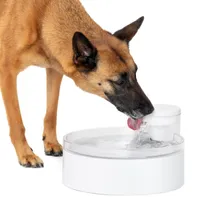Dehydration in dogs: Signs, causes and when to see a vet
Dehydration in dogs can have fatal consequences – here’s how to prevent and treat it, according to an expert
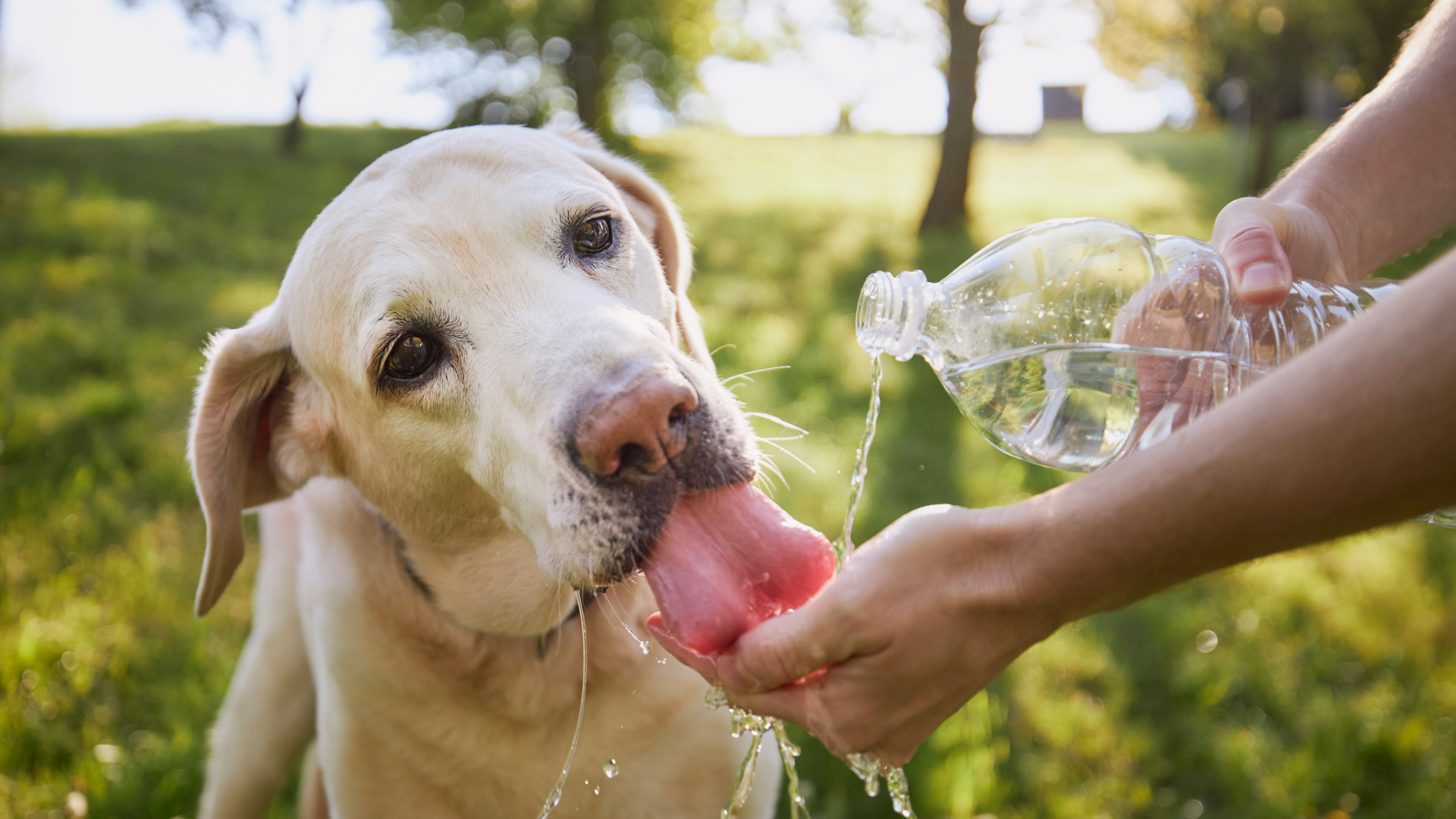
Get the best advice, tips and top tech for your beloved Pets
You are now subscribed
Your newsletter sign-up was successful
Dehydration in dogs is a serious condition that can lead to shock, organ failure, or even death. It occurs when the body loses more water than it takes in, and is most likely to happen during hot weather spells or in older dogs, with or without existing health conditions.
Throughout the day, your dog loses bodily fluids through panting, urinating, evaporation from their paws, and breathing, which is why it’s important to provide plenty of water sources. Many vets recommend investing in the best pet fountain, as it keeps the water clean and many dogs prefer drinking from running water.
Below, expert vet Dr Hannah Godfrey explains the signs, causes, and how to help a dehydrated dog so you can stay prepared. She’s been a qualified vet for almost a decade and a half, specializing in small animal care.
What causes dehydration in dogs?
Dehydration occurs if your dog isn't drinking enough water to keep up with their body's needs and any ongoing losses like vomiting or diarrhea. Dogs with underlying health conditions such as kidney or pain problems may be more at risk as they may not drink enough water to stay healthy.
The amount of water your dog's body needs will also be more if the weather is warm or if your canine companion is exercising. Therefore, you can see how easy it is for a dog to quickly become dehydrated, especially if they feel unwell and are not interested in eating or drinking.
What are the signs of dehydration in dogs?
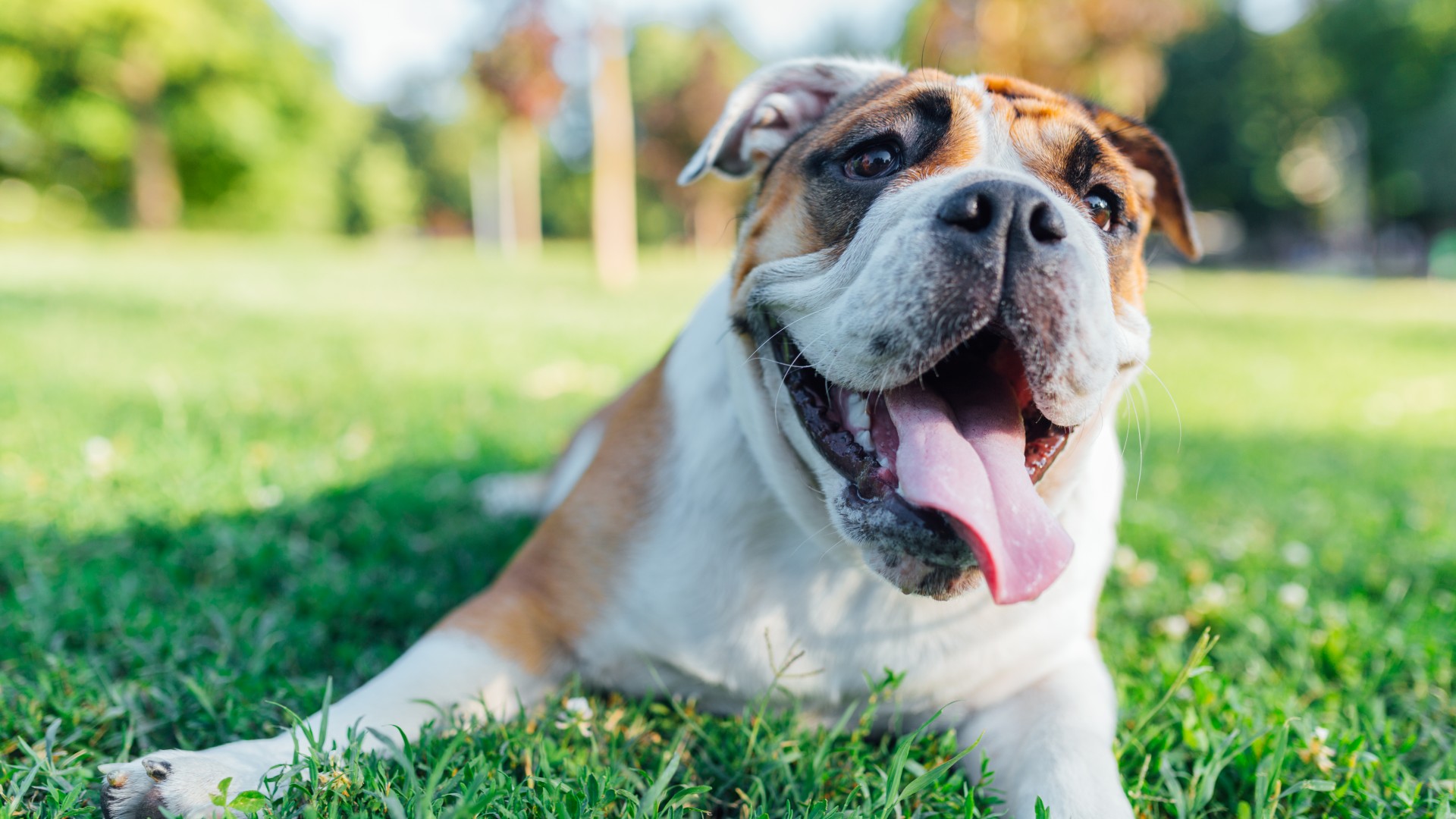
If your dog is dehydrated, you might think they’re just being a bit quiet.. This is because many of the symptoms of dehydration are pretty vague. For instance, if your dog is dehydrated, they're likely to withdraw and be lethargic.
They may seem weak and just a bit miserable. However, some more specific signs can give you the information you need to decide if your dog is dehydrated.
Get the best advice, tips and top tech for your beloved Pets
Firstly, if you touch their gums, they might feel dry or tacky, whereas usually, they would be moist. Second is the skin tent test. If you gently lift the skin of your dog's scruff away from their body, then drop it, you might find it's slow to return to its normal position, or even that it doesn't return. These are both signs of dehydration in dogs. You might also notice that your pup is reluctant to eat anything, is panting, has a dry nose or that his saliva looks thick and drooly.
Finally, if the dehydration is more severe, your dog may vomit or you might notice that his eyes look a little bit sunken.
How long can a dog last without water?
Although dogs can technically survive for around 72 hours without any water, you should always seek veterinary advice if your dog hasn’t drunk anything for 24 hours. After 24 hours, their symptoms will become more and more severe, and it could lead to permanent damage to organs like their kidneys.
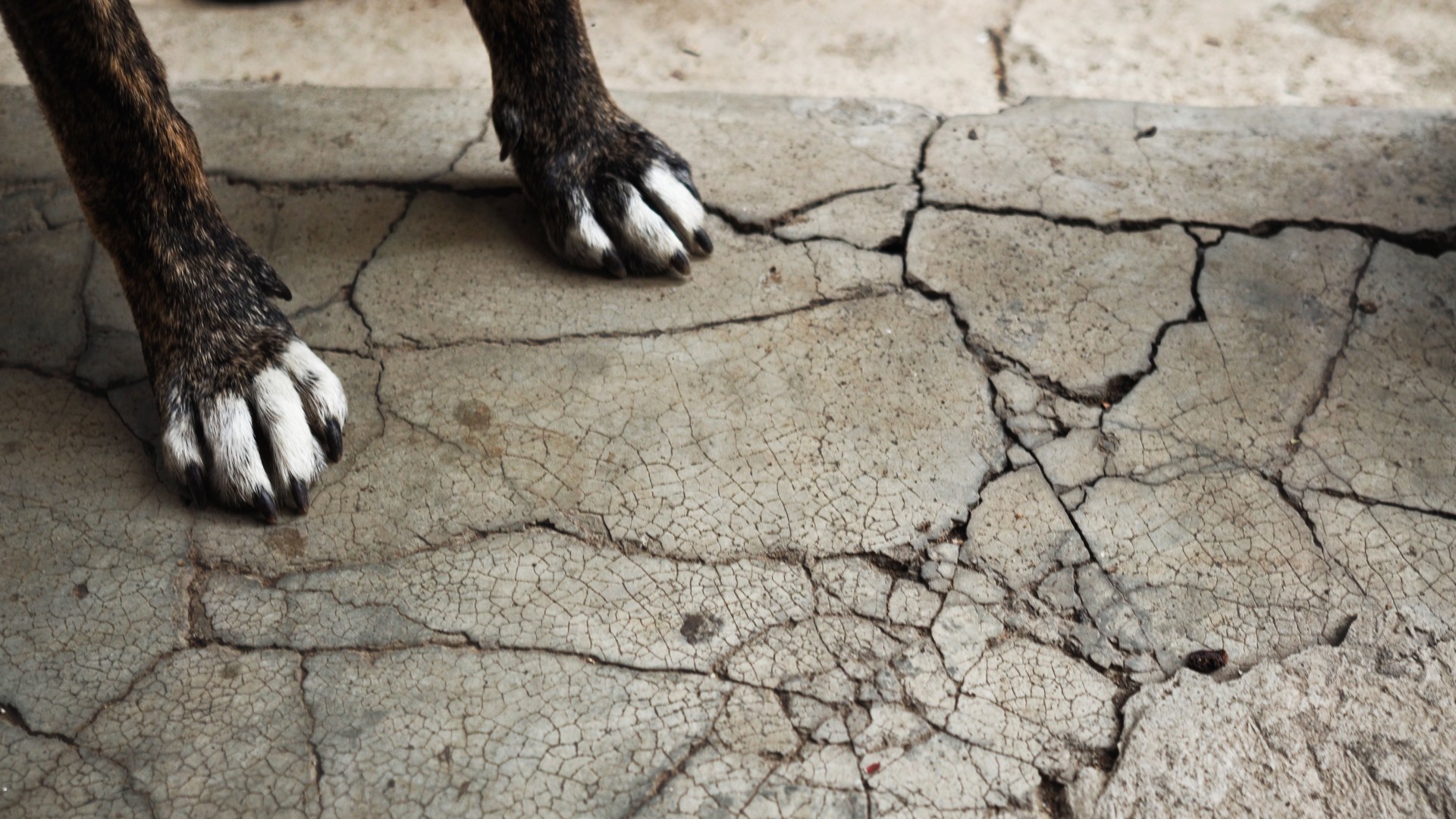
How often should a dog drink water?
Dogs need to drink at least 1ml of water per kilogram of their body weight every hour. So, an average-sized Cocker Spaniel weighing around 33lbs (15kg) would need to drink 15ml or more of water an hour.
Of course, this is unlikely to spread evenly throughout the day. It's much more likely that your dog will have some larger drinks and some smaller drinks, much like we do.
What's more important is that they get their total water requirement each day. Change and top up water bowls regularly, so that there’s always a supply of clean, fresh water available.
Watch out for bowls getting knocked over or filled with dirt. You can get some more advice by reading our guide on how much water your dog should be drinking. It's not just drinking less that is a concern with your fur friend, though; excessive thirst in dogs can also be a sign of underlying health problems.
How do you rehydrate a dog at home?
If your dog isn't drinking as much as they should and you think they might be dehydrated, you should always visit your vet.
However, in the meantime, you can try to encourage drinking by flavoring the water with a small amount of cooked meat juices. Failing that, you can syringe water into their mouth or try to get them to lap water from your hands.
How do you rehydrate a dog that won’t drink?
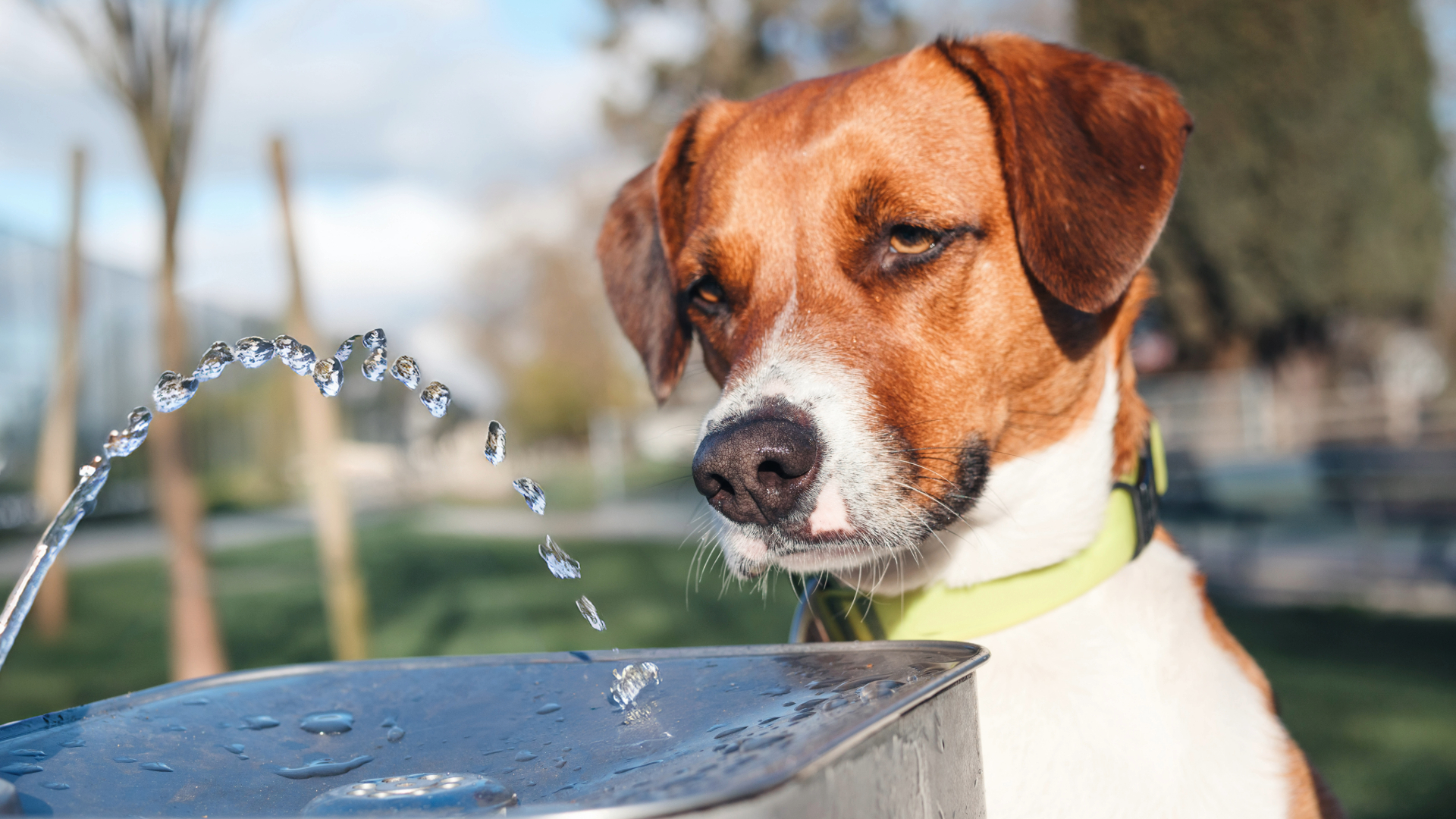
Sometimes, your dog won't drink due to nausea, pain, or feeling poorly in some other way. Dehydration can happen quickly, so it's best to get your furry family member checked over by a vet if you're worried. If your dog is dehydrated and won't drink, your vet may need to put them onto a fluid drip to get fluid directly into their circulation.
However, if you’ve had the all-clear from a veterinarian but you're still concerned that your dog needs to drink more, why not try offering them running water from a tap or water fountain? Some dogs also enjoy ice cubes, either added to their water bowl or used as part of a game. Every drop helps, especially in hot weather!
PetSafe Outlast Pumpless Dog Water Fountain | Amazon
This pet fountain provides your dog with fresh, running water throughout the day and holds up to 128 oz of liquid. Its pumpless design is whisper-quiet, and you won’t need to worry about cleaning it, as it’s dishwasher safe.
Can dogs die from dehydration?
Sadly, dogs can die from dehydration, and it doesn't take very long. Dogs might be able to survive for 72 hours with no water, but during this time, their organs will be shutting down, and their chances of recovery will reduce. This time period could be even shorter in hot conditions.
So, how do you know when to visit the vet when your dog might be dehydrated? Well, if your dog hasn't drunk any water for a full day, you should definitely speak to a vet.
Dehydration in dogs is very serious, and it can happen very quickly. Remember that if your dog is off their food and water, or it’s a hot day, they’re more at risk of dehydration.
This is also true if your dog has had a really active day running around, so keep lots of water available. Most importantly, you should always seek veterinary advice if it’s been 24 hours since your dog last had a drink.
Read next: Can dogs drink coconut water? and what should dogs drink?

Hannah graduated from the Royal Veterinary College in 2011 and began work straight away at a busy mixed practice. Initially, she treated all species, but focused on small animals from 2014. She has a passion for soft tissue surgery, ultrasound, and canine and feline dentistry, having completed additional training in these areas.
Edited by Georgia Guerin and Alexis de Leaver.
This page was last updated in June 2025 by Megan Milstead.
Dr Hannah Godfrey is a small animal vet who graduated from the Royal Veterinary College in 2011 and began work straight away at a busy mixed practice. Initially, she treated all species, but focussed on small animals from 2014. She has a passion for soft tissue surgery, ultrasound, and canine and feline dentistry, having completed additional training in these areas.
- Sara Walker
- Megan MilsteadStaff Writer
